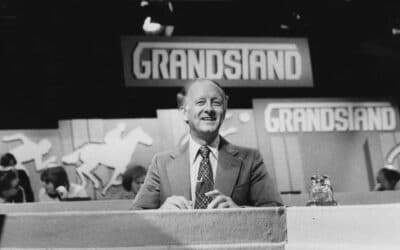Journalist Andrew Moody passed away over the weekend of June 26th at the age of 60, having been diagnosed with Motor Neurone Disease in 2017.
He was an experienced reporter who served as the Senior Correspondent at China Daily, based in Beijing – having previously worked at a wide range of titles including the Manchester Evening News, Daily Express, and Observer.
Nick Jaspan, Prolific North Publisher and friend of Moody’s, remembers the journalist’s life.
It’s fair to say Nottinghamshire-born Andrew Moody enjoyed a more singular journalistic journey than most. Indeed, his career took him from editing the student newspaper of Coventry University (where he studied for an honours degree in economics) to sharing a plane with Xi Jinping , the hardman President of the People’s Republic of China, as part of his mission to make many of the mainland’s more opaque political maneuverers more palatable to an increasingly hostile world.
It was while still committed to this task that he died on the week-end of 26th/27th June in his Beijing apartment, with the Motor Neurone Disease which he had been diagnosed with in 2017 finally claiming him. He would have been 61 in October this year.
After graduating, he swiftly committed to a career in journalism, moving on to study for an NCTJ at Darlington College of Technology. Heading South, he then joined the Gainsborough News as a junior reporter, before moving on to the Scunthorpe Star. It was here that his potential was spotted and he was swiftly promoted to Group News Editor of the 20 titles that constituted the Lincolnshire Standard Group.
Even this, though, was too small a palette for him and, after four years honing his skills in the local press in the east of England, he secured his first overseas posting – Business Correspondent for Dubai’s Gulf News. Like many before him, his role ultimately saw him end up at odds with the local authorities. After a year in situ, it was made clear to him that his future lay outside the Gulf.
Returning to the UK, he then joined the business desk of the Manchester Evening News at a time when the paper was in its imperial phase. Readership in excess of 300,000 and a daily four- to six-page business section soon saw Andrew widely feted by the city’s commercial community, many looking to benefit from his unique ability to transform anonymous businesspeople into recognised industry leaders with powerful viewpoints.
Five years on, and with an unsuccessful temporary change of direction in the shape of a failed screen test to become Granada TV’s first business correspondent behind him, he again moved on and, arguably, up. This saw him move to London as a City correspondent of the Daily Express and then, later, one of its team of political correspondents.
In 1995, he went freelance, becoming a regular contributor to such titles as the Express, the Mail, the Observer and Insider in Yorkshire and the North West, as he enthusiastically retained his connection to the North.
During this time, many of his assignments took him to the East, including Hong Kong – where he covered the 1997 handover – and to mainland China, where he became aware of the seismic changes underway in what was to become the world’s second-largest economy.
His growing fascination with Asia led him to join the China Daily – the mainland’s state-owned English language newspaper. Initially, this saw him sign up as one of the many temporary overseas staff taken on to help cover the 2008 Olympics.
In February 2009, he took up a full-time role at its Beijing headquarters, making him one of the few – if not the only – overseas members of staff employed as writer rather than a ‘polisher’ of translated text originally produced in Mandarin.
Originally employed as a senior business correspondent, within two years he had been made senior correspondent of the group’s burgeoning number of overseas editions, while also retaining his role as the most senior business journalist working for the group’s Beijing mothership. While his initial focus was on relatively neutral business stories, over the years his role morphed, leading him to become an enthusiastic advocate of all things CCP and something a of a critic of the many Western countries that didn’t always share his enthusiasm for the New China.
Among his friends, there was some disbelief that this instinctive one-nation Tory and occasional Lib Dem canvasser was now a convert to Communism with Chinese Characteristics. Even in private, though, he remained loyal to the party line, while still being as entertaining and affable as ever.
His love of China, it is fair to say, was clearly reciprocated. During his 12-year tenure with the paper he was the recipient of the China Daily Overseas Employee of the Year award three times (2010, 2014 and 2017). In 2019, he then received the China Friendship award, a rare annual accolade only presented by the Chinese government to 100 foreigners deemed to have made a significant contribution to the wellbeing and development of the People’s Republic.
In 2017, he was diagnosed with Motor Neurone Disease, a cruelly debilitating condition and a particular affront to a man who had long valued his privacy and independence above much else. Always one to play his cards close to his chest, he told few of his condition, with his subsequent death coming as an unwelcome surprise even to those that had been regularly in contact with him.
A keen fan of football, cricket and the UK’s political intricacies, he was a complex figure and something of a loner by choice. The consummate Englishman abroad in many senses, while his apparent conversion to the CCP cause startled many who knew him, his warmth and innate decency ensured that few were alienated by the convictions of his later years.
He is survived by his parents and a sister.












